clarkservin's blog
Natural teeth can last long or for a lifetime with good oral hygiene. Keeping your mouth healthy and maintaining good hygiene can keep you away from all oral issues and these dental procedures. Consuming low sugar and acid diet and regular dental visits can help you maintain good oral health.
But sometimes you can still have dental issues, and, commonly, that is why it is recommended to visit your dentist every 6 months so that your dentist can locate the upcoming disease soon and be treated it soon.
Today’s modern techniques have made it easier to treat dental issues. Treatments can now be carried out with little or no discomfort. All dental problems can be treated with 3 to 5 sittings in the Memorial Emergency Dentist office.
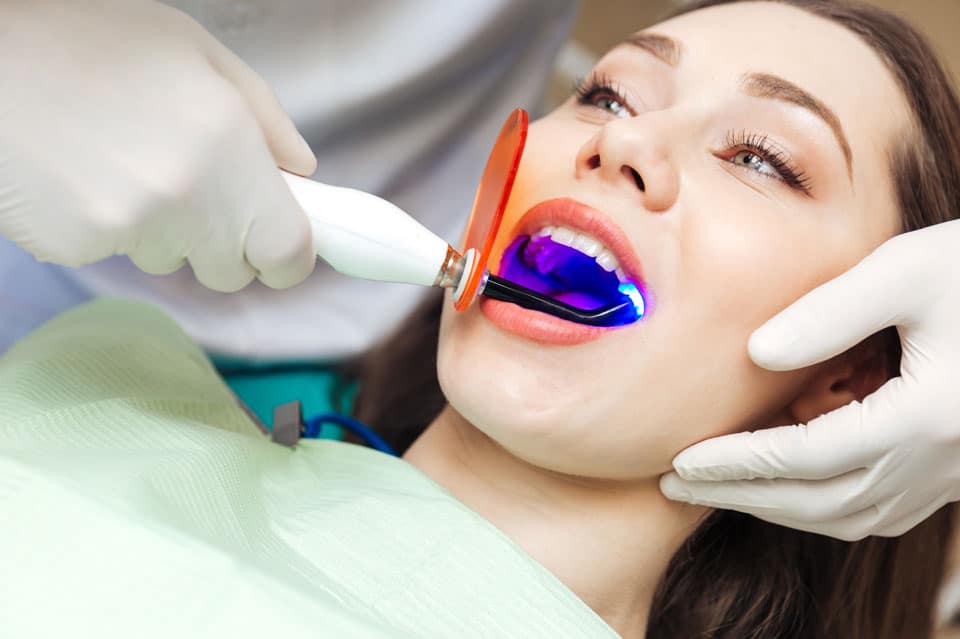
Here are some dental procedures that can help you: Professional teeth cleaning
Professional cleaning cleans your mouth correctly, which normal bruising and flossing can’t do. It removes built-up debris from the teeth. Debris may be food particles, soft plaque (bacterial growth), or complex calculus or tartar. And not removing it can cause gum disease.
A professional dentist cleans and polishes your teeth using dental tools and brushes them with a polishing paste to give them a white look. A professional cleaning can give you a healthy mouth that a daily brushing can’t provide. It also helps treat and prevent gum disease.
Book an appointment with theclosest dentist near me now for professional dental cleaning.
Dental fissure sealants
Sealants are thin layers painted on the chewing surfaces of the back teeth (molars) to prevent cavities (tooth decay). Any tooth with deep grooves or clefts or fissures is treated. Still, dentists usually place fissure sealants on molars and premolars, not front teeth. It helps to protect the tooth from bacteria. Fissure sealants are often advised for kids, as they lower the risk of decay in permanent teeth.
Dental fillings
A dental filling treats your decayed teeth caused by a cavity, filling the hole and making the teeth work naturally.
A filling can be of many materials, but most commonly, people prefer tooth-colored filling material; it provides the natural tooth color and restores the tooth’s shape, color and appearance.
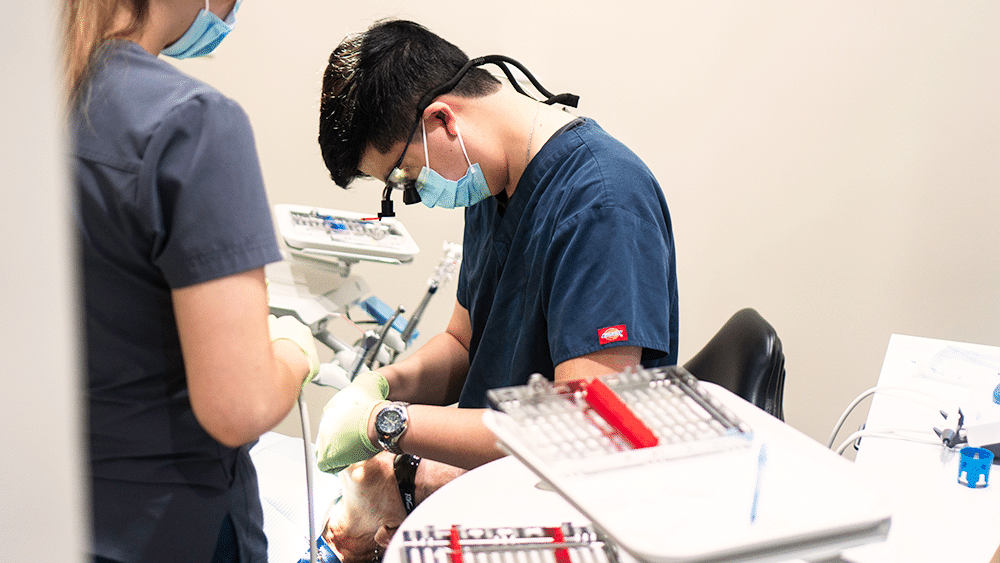
Dental crowns
A dental restoration repairs a tooth damaged by decay or injury. Dental crowns help correct cosmetic dental issues like a chipped or cracked tooth. Crowns work as a protection for the tooth, it covers the tooth and protects them from damage and infection. Sometimes dentists make your crowns simultaneously, so you have a same day dental appointments.
Tooth removal (extraction)
A tooth removal is done when there is a need to remove the tooth. Otherwise, dentists aim to save the tooth. If your tooth is causing extreme pain, your dentist will suggest you remove the tooth to get rid of the pain.
Sometimes your Dentist 77079 recommends you remove the painful wisdom tooth causing you pain.
In Conclusion:
The dentists generally recommend that everyone, including young children, visit the dentist every 6 months for good oral health. With these modern techniques, you will experience less pain and be comfortable. Call, walk in dentist clinic near me, and book an appointment.
Article Source : https://www.ihealthytips.com/what-are-common-dental-procedures/
Your natural teeth can last long with proper care and good oral hygiene. But everyone can’t take care of them in their busy schedule. But West Houston Dental has many ideal solutionsto restore teeth without discomfort. Crowns are the best solution to repair your damaged, cracked, or chipped teeth.
Maintaining good oral health is only sometimes possible, and crowns can help correct many problems and last many years. Dental crowns have a tooth-shaped structure that looks like your natural teeth, and the crown restores the tooth’s shape, size, strength, and appearance.
Does a crowned tooth need any special maintenance?
A crown does not need special care; the teeth should be protected from gum diseases and decay. For that, you must maintain your teeth regularly and include daily practices like brushing, flossing, and rinsing your mouth correctly twice a day.
Keeping your mouth clean and brushing and flossing the crown area can keep the crown healthy. Make sure you do it slowly in the area so you do not harm the crown.
If you want to enjoy their benefits for a lifetime, you must take proper care of your mouth.
If you break your crown, visit a Dental crown near me for checkups. Remember that the dental crown will be weak during the first few weeks of placement, so avoid chewing hard and sticky food like ice or chewing gum.
Types of dental crowns
Here are the types of crowns that are used:
Temporary crown
A temporary crown is, for some time, precisely what it sounds like. This crown is only for a short period in your mouth.
Temporary crowns are removed easily; your Dentist Memorial Houston willplace the crown with an easily accessible adhesive, so it does not get permanent to your tooth.
This process is usually done when a patient is waiting for a permanent crown. Your dentist will place the permanent dental crown on your tooth at a second appointment.
One-day crown
The one-day crown is installed in a single day in one appointment.
Some dental offices install the crown in one day using one of several methods involving computer-aided design/computer-aided manufacturing, also known as CAD/CAM.
As your new crown is designed and milled, your dentist will place it in your mouth.
Onlay or 3/4 crown
When you do not want a full-coverage crown on your tooth. Then your dentist will suggest an onlay or 3/4 crown that covers the 3/4 part of your teeth.
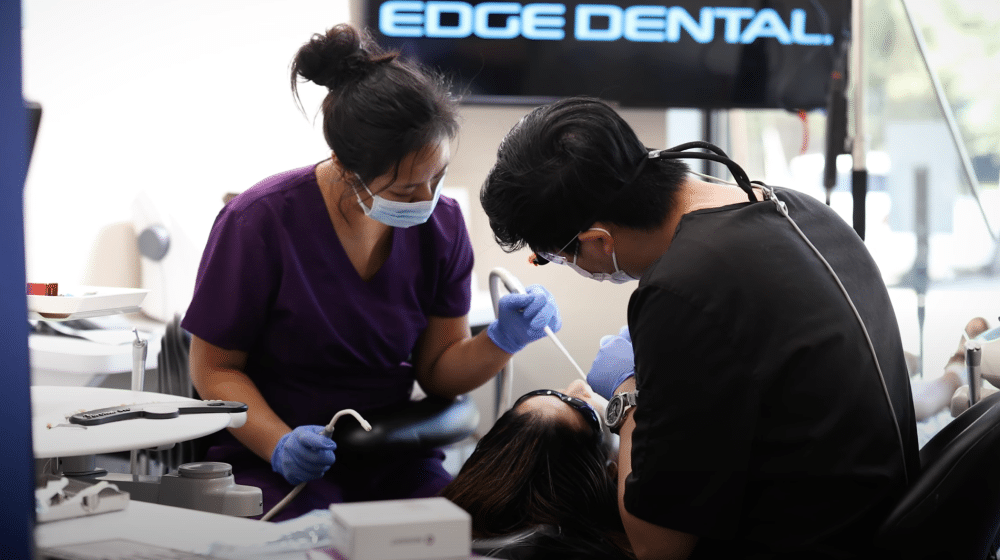
Conclusion:
Crowns are a cosmetic solution for cosmetic issues. Many people choose crowns as it is a long-lasting and affordable solution for many cosmetic problems.
But it would be best if you practice good oral hygiene. And visit thenearest dentist near me for dental cleanings and checkups regularly.
Contact dentists near me open now if you have any questions about how to take care of your dental crown or if you are considering getting a dental crown.
Article Source : https://www.gohealthtips.com/know-everything-about-a-dental-crown/
Your dentist tries to save your tooth, but when nothing is possible, then the last option that your dentist will consider is tooth extraction. The dentist checks your tooth thoroughly to examine your teeth, gums, and mouth.
You can consult your Emergency Dentist to learn more about tooth extraction. Extracting your tooth will be the last choice that your dentist will consider as a dental solution.
Tooth damage due to severe decayTooth decay is the most common dental issue many experiences, which is why many have to extract their teeth.
It can take years to occur, in the early stages, the decay impacts the tooth enamel, and you must treat it then. Once it wears through the enamel, the internal part of the tooth, the dentin, starts deteriorating. Ignoring can reach a tooth loss stage. And this infection can cause a root canal, and your dentist suggests you a root canal treatment.
The more you wait to treat the disease, the more infection spreads and becomes intense, and damages the tooth. And when the tooth becomes so much infected, there is no option left other than to extract it. The dentist extracts your tooth, but there are tooth restoration options available.
Suppose you visit City Center Dentists for dental exams and cleanings every six months. In that case, cavities can be stopped, detected, and treated with a simple filling.
Gum DiseaseUntreated gum disease can damage teeth just as much as tooth decay can. Gum tissue, ligaments, and the bone that supports the teeth deteriorate in the advanced stages of gum disease. Gum disease will ultimately cause the teeth to fall out on their own, or your dentist has to extract it and treat it for gum disease and tooth replacement.
Crowded teethThe orthodontic treatment plan for a patient may include tooth extraction. The orthodontist may advise the removal of permanent teeth if the patient's teeth are incredibly crowded.
Extracting the tooth makes space for the remaining teeth to adjust in a proper alignment.
Impacted TeethAn impacted tooth can cause a lot of pain when the gums do not erupt fully or when it does not come out quickly; it causes pain. This usually happens in wisdom teeth.
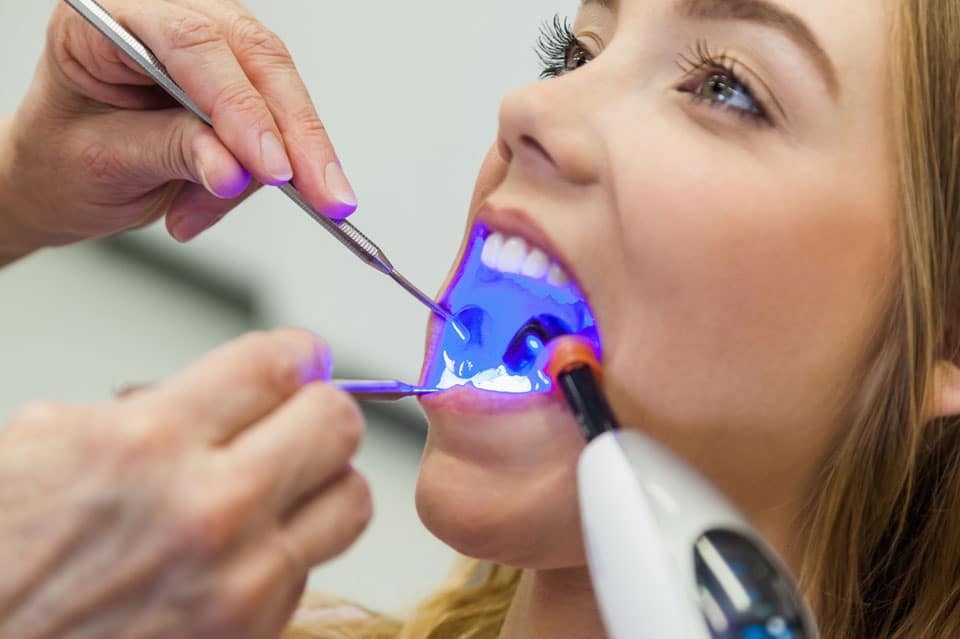
The dentist near me open recommends the impacted tooth extraction to prevent it from sabotaging other teeth. Impacted tooth extraction may also help reduce the risk of infection.
Tooth BreakageIf your tooth breaks or gets cracked, in that case, there may not be much space to adjust a tooth restoration, such as a dental crown. A dental crown protects against decay and helps the teeth restore shape, size, and appearance.
In this case, the tooth needs to be extracted.
In conclusion:Visit your Walk In Dental Clinic Near Me for tooth extraction if you need one, or yor dentist will suggest the best suitable option for you.
Contact your dentist today to schedule an appointment at urgent dental care Houston.
Article Source : https://www.earticlesource.com/why-is-it-essential-to-extract-a-tooth/
You may experience pain and swelling in your teeth but not bone loss or resorption. However, it may happen due to tooth extraction, orthodontic appliances, and tooth infection. Therefore you should learn how to prevent tooth loss in the teeth and keep your teeth and gums suitable for tooth replacement solutions.
As s trusted dentist Energy Corridor, you should be aware of replacing your missing teeth and practice good dental care to prevent bone loss. Here are some ways you should consider slowing down bone loss through oral treatment and lifestyle changes.
How does bone loss occur in teeth?Our bones have their roots and nerve signals for messaging called osseointegration, where osteoblasts carry signals and stimulate through body moment. For your jaws, the stimulation comes from pressure exertion from your teeth whenever you eat, chew, or bite.

But, when we lose a natural tooth, the stimulation interrupts, and your body thinks that the bones are no longer, so there is no need to hold. Therefore osteoclasts break down the bones and release bone constantly.
What are the Symptoms of bone loss in teeth?Bone loss in your teeth happens gradually and may show the following symptoms:
- If your dentures are ill-fitted
- Teeth shifting
- your facial structure collapse
- Have more wrinkles
- Loose teeth
- Your lips start sinking inwards
- You may experience discomfort while chewing and eating
If you want to save your teeth and the aesthetic look of your face, you should visit Memorial Dental to prevent bone loss.
What are the Causes of bone loss in your teeth?Tooth loss is most common due to bone resorption. However, some conditions make bone resorption a risky factor, including:
Can you reverse dental bone loss?Bone loss is a natural phenomenon and part of the aging process. However, you may experience bone loss due to tooth loss, injury, disease, and infection; you should visit Memorial Dentists to prevent the severity of infection or disease or slow down bone loss in your teeth:
Replace your missing teethIf you lose your teeth, that will make your body think you don’t need bones to attach to them due to a lack of stimulation from chewing and eating.
However, dental implants are the only option to help send stimulation like your natural tooth and roots. In dental implants, the closest walk in dentist places a titanium post below the gum line to help bone treatment themselves to rebuild your jawbone.
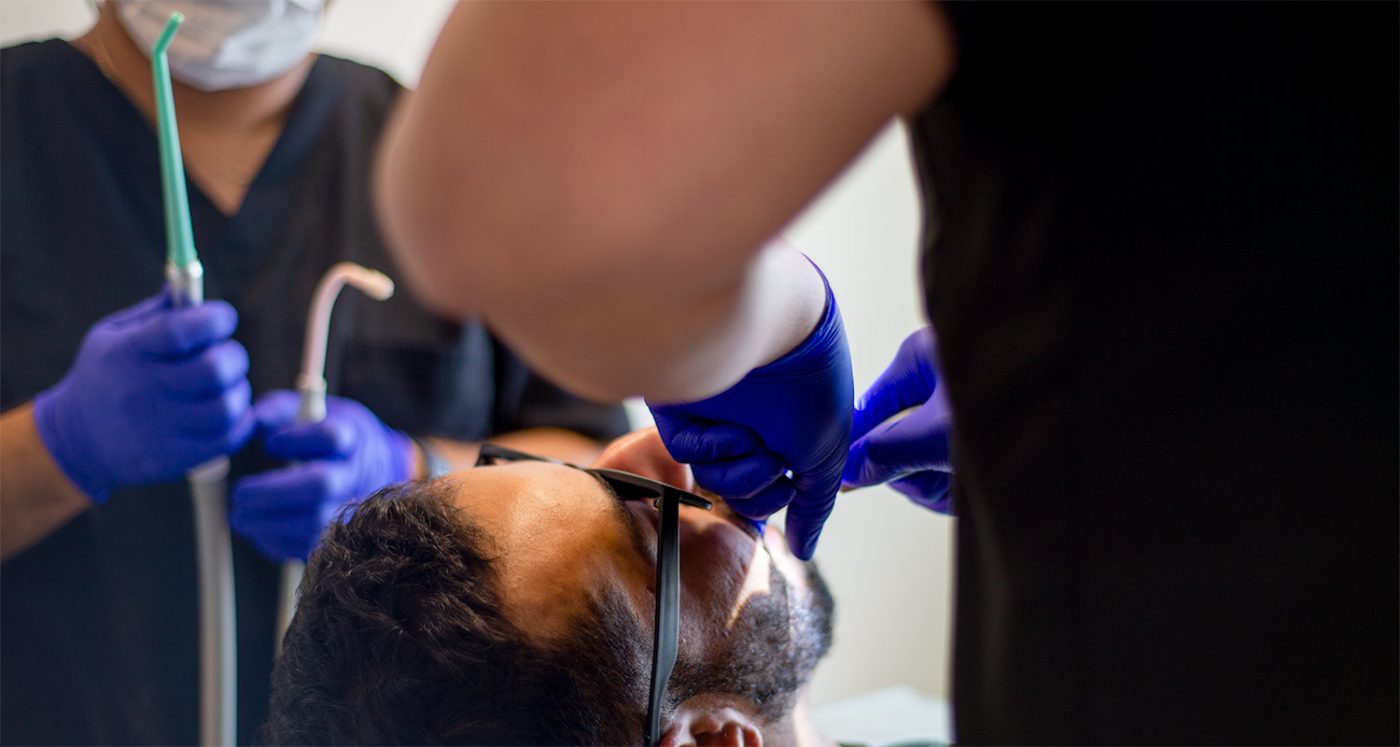
Gingivitis is the inflammation and pain around your gums, the first stage of dental infection. Gum diseases are reversible with proper treatment and good dental practices. Also, you shouldn’t compromise your immune system. To stop further damage progression, it’s essential to remove plaque and tartar buildup from and below the gum line that may cause the inflammation.
Conclusion:If left untreated, the bone in your jaw and surrounder teeth will continue to lose, resorb, disease and pain. However, proper dental care can stop bone loss and even reverse it. Therefore you should visit City Center Dental for proper treatment and diagnosis of the dental issue.
Article Source : https://www.transitsblog.com/how-can-i-improve-bone-loss-in-my-teeth/
A toothache is pain and sensation around a tooth. You may have minor toothaches from temporary gum irritation that you can treat at home. Moreover, serious toothache caused by various problems and won’t get better on its own, you need to visit thenearest dentist near me for proper checkup and treatment.
Why is my toothache so painful?The pulp tooth core is very soft and contains nerves, tissues, and blood vessels. There are the most sensitive nerves in the body. When they get infected or dead due to bacteria, you start experiencing pain.
What are the causes of toothaches?Here are some common causes of Toothaches:
- Tooth decay and cavities.
- Abscessed tooth infection
- Broken tooth (fracture)
- If your filling is damaged.
- If your teeth wear down due to chewing gums or grinding at night
- Gums infection
- Teeth Eruption

If you find any of the conditions, then visit adentist near me walk in for thorough treatment and diagnosis of the issue.
What are the signs and symptoms of toothache?- You may experience sharp, throbbing, or constant pain. Sometimes the pain comes when pressure is exerted.
- If you feel swelling around your teeth
- Any fever or headache
- Foul taste and drainage from teeth infection
- Bad breath from your mouth
If you experience trouble and discomfort while breathing and swallowing, you should seekthe nearest dentist immediately.
Can your toothache go away on its own?Some toothaches that come due to rough brushing can get better without a visit to the dentist. Moreover, pain or redness around your gums gets resolved within a few weeks. You should avoid chewing from the affected side to heal faster and eat soft food like eggs and yogurt.
What makes your pain worse, and what gives you relief?Your dentist team will examine the situation with digital scanning and X-rays to know about your mouth, teeth, gums, and tongue. Therefore you should consider visiting a walk-in dentist near me to relieve your pain.
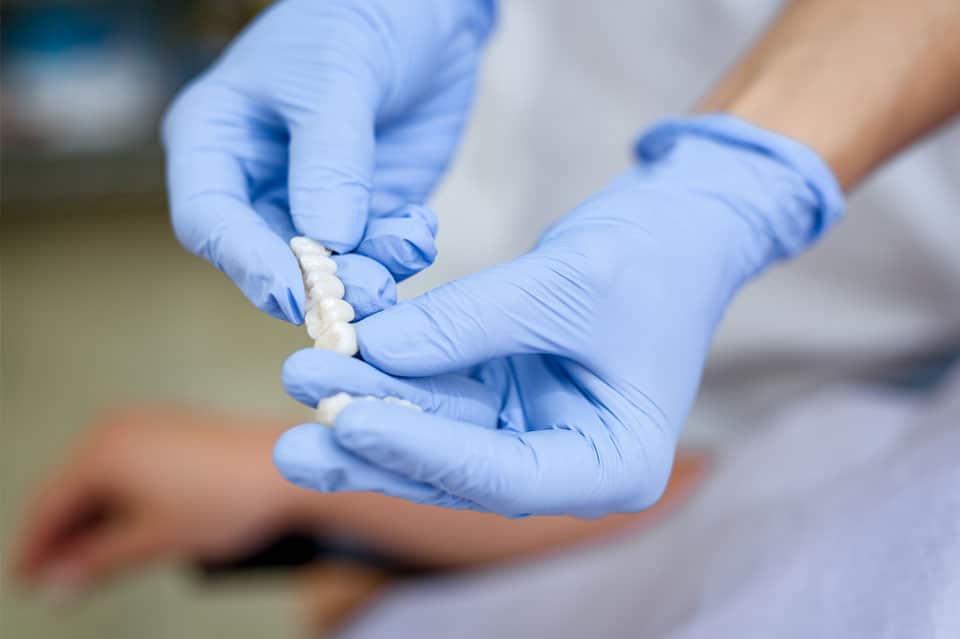
Treatment for each condition will depend upon the situation, location, and affordability.
- If your get toothaches due to the cavity, your dentist will consider filling a cavity again or tooth extraction if the infection is severe.
- Your dentist may recommend a root canal (RCT); if your pulp gets infected or dead, they will remove it to ensure no further infection.
They will prescribe antibiotics if there is fewer or severe swelling in the jaws. Even a tiny piece of food can cause teeth infection. In such cases, they will perform a deep dental cleaning to remove food particles and plaque buildup above and under the gumline.
ConclusionSuppose you are suffering from pain and swelling around your mouth. In that case, you should consider visiting a dentist near me open for a thorough checkup and treatment. Also, you should maintain good dental practices, such as brushing and flossing at least twice daily and visiting your dentist for regular checkups at least two times a year.
Article Source : https://www.shoutarticle.com/can-tooth-inflammation-go-away-on-its-own/
Dental filling won’t last forever and sometimes may fall out if you don’t have a dental crown. There are various reasons why dental fillings loose and fallout, some of the most common reasons are:
- New decay around your filling
- If you put too much pressure
- Bite hard or crunchy foods
- Grinding at Night
- Trauma or accident to your tooth
- A chemical reaction may loosen the bonding between tooth and filling
If a filling falls out, you should visit walk ins dentist near me in houston to know why and re-treat your teeth for a healthy and hygienic smile.
What should I do if the filling comes or is loose?If your teeth filling comes out or loose, it is important to visit a Dentist Memorial and follow some steps.

- Seek aDentist 77084 and tell if you’re experiencing pain or sensation. If you can’t visit, ask for suggestions to protect your exposed or damaged tooth.
- Also, you should keep the filling so that dentist can determine the problem and treatment. If you lose a dental crown, the dentist will receive it on your teeth.
- Gargle with salt water to keep the area clean and remove any food particles or plaque from your teeth. Also, this can help kill bacteria that could damage the exposed teeth.
- You should maintain a dental hygiene routine by gently brushing and flossing your teeth where the filling came out to prevent plaque and tartar buildup.
- Avoid chewing and eating from exposed tooth areas.
Dental wax or temporary filling material might protect the exposed tooth. This is a temporary solution to save exposed areas until you visit walking in dentist near me in houston for proper treatment and evaluation of the issue.

Good dental practices and regular dental visits are the best way to prevent dental fillings from being loose. Here are some tips you should consider for good dental health:
- Brushing your teeth with fluoride toothpaste atleast twice a day.
- Floss your teeth
- Replace your toothbrush every 3 to 4 months.
- Also, brush your tongue to eliminate bacteria and for fresh breath.
- Visit your dentist regularly for deep cleaning.
- Getting check-ups at atleast twice a year because if there is any problem, the dentist will treat and save your teeth from the eruption. Also, they can detect if your filling is worn and needs replacement before it falls.
- If you’re suffering from griding, you should use a mouth guard or splint to save your teeth from clenching and being knocked down.
- Avoid chewing hard food and ice.
- Be cautious while eating hard candy or toasted bagels.
- Do not try to clench your teeth.
- Limit some food items such as sticky and sugary foods because sticky food can dislodge your filling and increase the chances of tooth decay.
- Visit your dentist if you feel any heat or cold or begin to hurt the area.
If you find your filling is falling out or loose, you should consider visiting a dentist 77077 for proper treatment to save your teeth and smile.
Article Source : https://www.articleslurp.com/what-to-do-if-your-filling-falls-out/
Knowing what to expect from wisdom teeth removal can ensure a smoother and faster recovery. It purely depends on case to case, and it may take anywhere from one to two weeks to fully recover; however, most patients return to their normal routine within 6 to 7 days.
After the wisdom teeth removal
After wisdom teeth surgery, it's hard to follow your surgeon's post-operative instructions, mostly to minimize discomfort and risk of complications. There are many factors to determine your healing time, including your age and, the location of your teeth, most important, your commitment and time for healing.
You may experience discomfort, stiffness, swelling, and a little bleeding after your teeth are extracted. Moreover, suppose you may notice severe pain, excessive bleeding, or abnormal symptoms. In that case, you should visit Emergency Dental Service as soon as possible.
What are the tips to fasten your recovery process?
Every patient is different, and you can't compare two people's recovery times after wisdom teeth extraction surgery because some people go to routine work in a few days, while others may take weeks to subsidies swollen and soreness. Here are some steps you may consider to speed up your healing process.

- You should at least give three days to rest
- Apply ice packs over the cheeks for the first day
- Keep your head elevated and straight with the extra pillow
- Stay hydrated; don't leave your mouth dry for a few minutes
- You should avoid bad habits like alcohol, smoking, and tobacco products
- Take prescribed medications
- Do rinse your mouth with warm salt water many times
- Take the liquid and soft-food diet for at least 3-5 days
- You should also avoid activities that may dislodge blood clotting
- Massage gently and stretch jaw muscles for three days
Wisdom tooth removal surgery does have some risks and complications, including infection, dry socket, continuous bleeding, and nerve tissue damage. Most of them are rare and can be avoided by following detailed instructions, which City Center Emergency Dental explained after the surgery.
Returning to normal
- After swelling and soreness subsidies, your mouth will return to normal.
- You can brush your teeth after a few days, and you should also make sure you will complete the course of medication and antibiotics.
- You may have to visit around a week or immediately after the extraction daily. In that given period, Nearest Dental Clinic will remove stitches.
As with any treatment, including wisdom teeth extraction carries some risks. However, these risks are small and treatable.

- Dry socket – A blood clot may not develop or dislodge due to dryness around your mouth.
- Nerve injury can cause pain and numb your tongue, cheeks, and lips.
- Infection – If you feel yellowish discharge from the extraction site with a slightly high temperature, pain, and bleeding.
Thenearest Dentist Officeremoves a tooth when there is no alternative or finds a severe tooth infection. Therefore you should maintain good dental practices and follow dentist instructions to heal your teeth faster and infection free. Moreover, if you find pain and swelling for an extended period, visit Walk In Emergency Dentist Near Me Open Now for treatment.
Article Source : https://www.articleapprove.com/should-i-avoid-talking-after-wisdom-teeth-removal/
People with extensive and large cavities may often require a dental crown to repair and restore their smiles. It also protects other dental procedures like a root canal to eliminate pain and discomfort. Moreover, it is a widespread and primarily used technique to provide aesthetics and functionality to your teeth. Therefore if you have stained, knocked or fractured teeth, visitDentist North West Houston to get back natural teeth look.
How to prepare for a dental crown?
If you find you may think you are a candidate for a dental crown, then visit an Emergency Dentist to learn more about dental crowns and how they will help to repair your teeth. Based on your condition, the dentist may recommend various alternatives to repair and restore your teeth' look.
Physical suitability for dental crowns
Suppose your teeth become severely damaged due to an accident or decay, but the root remains to save. In that case, Spring Branch Dental uses a dental crown to repair your tooth and restore its beauty and function. You should also maintain dental health and hygiene to increase the durability of the dental crown. Suppose you are suffering from missing or lost teeth, or your teeth are too severe. In that case, your dentist offers alternatives such as dental implants, bridges, or dentures to provide an aesthetic look and functionality.

What is the process of placement of a dental crown?
A dental crown is a permanent cover placed over your teeth to strengthen your damaged teeth. There are various materials from which dental crowns can be made:
- Metal(all types)
- White Resin
- Porcelain
- Ceramic
Dentist Energy Corridorcan help and guide you in choosing the best material dental crown for you. Also, the selection includes budget, aesthetic preference, and medical history. During this procedure, your dentist will use a local anesthetic to numb the affected area and then reshapes your damaged teeth to prepare for a dental crown. And take impressions of teeth and place a temporary crown until the permanent crown is made.
After a few days, when a permanent crown is made, your dentist uses adhesive or white cement to place it permanently.
How much time do you need to recover?
Usually, most patients experience some discomfort and sensitivity after having a dental crown. However, you can eat and drink after the procedure, and only the dentist can recommend not eating hot or cold items for a few days, as well as chewy, sticky, crunchy, or hard foods.

Also, you should use sensitive toothpaste and take over-the-counter medications such as painkillers and antibiotics to manage post-procedure pain. Furthermore, Suppose you feel any pain or discomfort. In that case, it might be because of a bite pattern, and you should consider visiting a dentist, who will subsidies the problem just by adjusting your dental crown.
Conclusion:
If you have fractured, knocked, or chipped teeth, you should consider visiting a Dentist 77079 to restore and repair your damaged or infectious teeth.
Sometimes, your dentist will recommend a dental crown after the root canal (RCT) to strengthen your teeth and protect the dental filling from popping out or losing.
Article Source : https://www.techsmarttips.com/is-the-dental-crown-procedure-painful/
Oral health is most important for various reasons. If patients suffer from gum disease, cavities, or have a bad odor, this can cause issues with your teeth and mouth. Our mouths are pathways for bacteria to enter the body. Suppose you dont perform dental practices or leave diseases untreated. In that case, bacteria may infect your bloodstream and cause inflammation in other body parts.
Taking proper care of your teeth and mouth can keep your body healthy and prevent severe future issues. Emergency Dentist Near Me encourages individuals to practice good oral hygiene at home.
What Problems Can Occur From Poor Oral Health? Respiratory InfectionsThe bacteria can transfer into the lungs and cause respiratory infections, pneumonia, or even bronchitis if you have infected or inflamed gums.

Inflamed gums release inflamed substances that harm your nerves and brain cells. This may result in memory loss or confusion and infected bacterial infections.
Cardiovascular DiseaseYou risk cardiovascular disease if you don’t practice good oral health. Then the bacteria may enter your blood vessels and can cause plaque build-up in the arteries, increasing the risk of a heart attack.
Prostate ProblemsIf a person suffers from periodontal disease, they may have prostatitis. This situation can cause irritation and other prostate-related problems such as blood in urine or pain and burning sensations during urination.
DiabetesPeople with diabetes are more likely to have infected and diseased gums as compared to those who do not have diabetes. This will make diabetes worse to control because of unregulated blood sugar levels.
InfertilityPoor oral health and infertility in women are inter-linked. If a woman suffers infectious gum diseases, that may lead to issues with infertility. This is one of the causes of infertility in women and makes it harder for women to conceive or have children. Visit tooth filling near me regularly to take necessary precautions before any severe disease happens.

Prevent serious health issues caused by inadequate oral habits such as smoking, alcohol intake, excess sugar consumption, and practices such as brushing and flossing. Scheduling regular dental check-ups or thorough examinations lets your doctor know the proper idea about the mouth condition for the best treatment possible. Also, visit City Center Dental Clinic for routine check-ups at least twice a year.
Tips for Good Oral Hygiene- Brush and floss your teeth daily
- Visit Emergency Dentist for routine check-ups and deep cleansing
- Avoid smoking, intake of alcohol, or using any tobacco products
- Use mouthwash and toothpaste that contains fluoride
- Avoid food and drinks that have lots of sugar
- Eat a balanced diet full of minerals and vitamins
- Daily exercise will help you to care for oral health.
If you take care of your oral health, you take care of your body. Your good oral health and hygiene can help prevent many infectious diseases such as gingivitis or periodontal diseases and eliminates any chances of more severe health issue in your body. Don’t let your infection or disease spread; contact Dentist 77079 to eliminate them.
Article Source : https://www.bloggingpalace.com/how-does-the-dental-disease-affect-the-body/
To treat a cavity, West Houston Dental removes the decayed portion of your tooth and then fills the area on the tooth.
Also, your dentist uses a filling material to repair cracked or broken teeth and teeth worn down due to bad use, such as nail-biting. Here are some ways in which you can pick your filling type.
Fillings That Look Like Your Teeth
Primarily, Dentist Energy Corridor recommends composite fillings as dental fillings for cases where the size of your cavity is small to medium or if the teeth need a lot of chewing action. Also, composite fillings are made up of glass or quartz in resin. These are also a good choice for people afraid of dental work since a composite filling material takes less time to get bonded and needs less drilling.

Moreover, composite fillings can closely match your teeth' color. However, unlike all other dental materials, composite fillings also have limitations; they get stained or discolored easily.
Fillings That Release Fluoride
This is one of the advances or new opinions for filling your teeth. This includes glass ionomers made of acrylic acids and fine-glass powders. West Houston Dentist can blend them to your nearby teeth' color and design them so they can release a small amount of fluoride to prevent decay.
But Glass ionomer filling has a limitation that it can break easily, making them a bad choice for a surface that does chewing. However, they are best to fill your teeth near the gum line or to fill the gap in between the teeth. If your teeths are stained or chipped, you should contact West Houston Dental Clinic for the restoration of your teeth.
Crowns That Look Like Your Teeth
Most people pick porcelain, ceramic, or glass-like substances when you need a dental crown, inlays, or veneers. Because the color of your dental appliance matches your teeth, also, this material lasts longer and is very strong.
But this procedure is a little longer than other dental restorative treatments and needs at least two-three dental visits. Furthermore, these can cost you more than other options.

Your dentist chooses porcelain veneers because they are fragile shells and can fit on your tooth surface, and no one can hardly see them.
Affordable, Long-Lasting Fillings
Dentists have been using amalgamation to fill cavities for more than centuries. These fillings are budget-friendly and are a combination of silver, tin, copper, and mercury. Also, they are durable and long lasting as compared to other procedures. Your dentist may recommend amalgam filling if the cavity is in wisdom teeth because it stands up well to chewing.
However, people can notice amalgam material because it is silver in color. Also, you may feel sensitivity to hot and cold food or water immediately after filing, but it is temporary. Some people may have concerned about the amalgamation process because it contains mercury, but many reliable sources deny it.
To find what is best for you, you should visit Dental Clinic Near Me Open Now to eliminate any possible dental infections and diseases.
Article Source : https://www.articleaffiliate.com/how-do-i-choose-a-tooth-filling/


